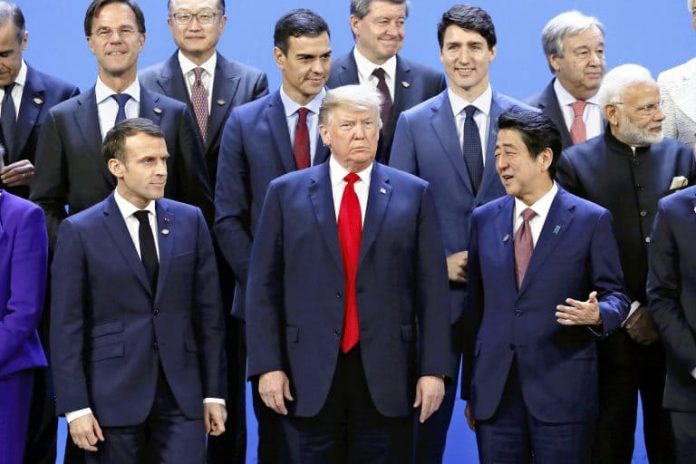GLOBAL politics is being diminished gradually to a numbers game, reducing slowly from G-20 to G-7 until it reaches the power of G-2: United States and China.
The foreign policy of the United States is dependent crucially on the forthcoming presidential election. Should Donald Trump win a second term, the world and China can expect more of the same, perhaps even worse, for his knee-jerk style of diplomacy is unlikely to settle into the more conventional rhythms of inter-state relations.
If Trump had his way, he would pitch for a constitutional amendment that would give him a third term. (The only other president to serve three full terms — and 23 days into a fourth — was Franklin D. Roosevelt, 1933-1945). Trump’s second term would parallel that of Israel’s Benjamin Netanyahu, already Israel’s longest-serving prime minister.
Netanyahu’s present term will expire in 2024. He is currently 70 years old — younger even than the state of Israel. Trump’s re-election would ensure their partnership (and Jared Kushner’s pseudo statesmanship) will continue for four more years, with serious consequences for this region.
China’s increasing economic might and its commercial tendrils will continue to spread (despite the prayers of China’s detractors) well until the end of this century. China has nothing to fear (as Franklin Roosevelt once told his fellow Americans) other than fear itself. Certainly the Chinese are not afraid of Trump. He is dismissed by them as a hood with presidential powers, in contrast to their favourite Richard Nixon, a president with the habits of a hood.
China knows it will have to share the stage with other countries that, through sheer force of presence, are emerging as regional powers. Some states already have revealed a significant measure of territorial influence — in South America: Brazil, Argentina, Chile, Mexico and Venezuela; in Africa: Nigeria and South Africa (if it can resolve its lingering racial divide); in the Middle East: Zionist Israel, leaderless Egypt, Wahabi Saudi Arabia and Shia Iran (each jostling for primary influence); and in Asia: Indonesia, Australia, South Korea, and Japan. Moving ahead of this pack, at different speeds, are Russia, India and the European Union (if it can find the right adhesive to keep itself together).
China’s expansionist intentions are clear. It has a military hard power that is second only to the United States. As a country with the second largest economy in the world, it now wants to wield that soft-power. To smaller countries which experienced the ravages of colonialism, the long-term impact of China’s strategically significant — if financially unviable — forays are yet unproven. Historians in the year 2100 will be better informed. Today we can only surmise.
Meanwhile, elected and self-appointed leaders of any age should heed the timeless wisdom of the sage Confucius who, like China’s economy, stands rehabilitated: “In a country well governed, poverty is something to be ashamed of. In a country badly governed, wealth is something to be ashamed of.”








